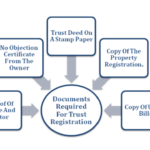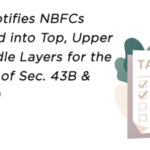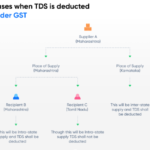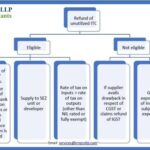According to the Income Tax Act’s definition, a “gift” can be money or movable or immovable property that an individual receives from another individual or organization without making a payment. The term “donor” refers to the individual or organization making the gift, while “donee” refers to the recipient.
Gifts, on the other hand, can frequently be used as part of tax planning or evasion. Tax evasion is illegal and punishable, but tax planning done in accordance with the law is allowed.
The Public authority presented a gift charge in April 1958 directed by Gift Expense Act, 1958 (GTA) with a goal to force charges on giving and getting gifts under specific explicit conditions. Gifts as money, request draft, bank checks, or anything having esteem were covered.
However, in October 1998, the Gift Tax Act (GTA) was repealed, making all gifts tax-free. However, in 2004, GTA was included in the income tax provisions in a new form. To avoid any erroneous or unplanned tax outflow, it is critical to have a basic understanding of India’s gift taxation.
gift taxation in India
 as per the law, as it stands today which was amended in 2017, gifts received by any person by any person or persons are taxed in the hands of the recipient under the head ‘Income from other sources’ at normal tax rates. We have discussed below what kind of gifts are covered and their quantum to be taxed.
as per the law, as it stands today which was amended in 2017, gifts received by any person by any person or persons are taxed in the hands of the recipient under the head ‘Income from other sources’ at normal tax rates. We have discussed below what kind of gifts are covered and their quantum to be taxed.
The provisions relating to gift tax have been dealt with under Section 56(2)(x) of the Income Tax Act, 1961. These provisions have been briefly captured in the form of the table below
|
Kind of gift covered |
Monetary threshold |
Quantum taxable |
|
Any sum of money without consideration |
Sum > 50,000 |
Entire sum of money received |
|
Any immovable property such as land, building, etc. without consideration |
Stamp duty value* > Rs 50,000 |
Stamp duty value of the property |
|
Any immovable property for inadequate consideration |
Stamp duty value* exceeds consideration by > Rs 50,000 |
Stamp duty value Minus consideration |
|
Any property (jewellery, shares, drawings, etc.) other than an immovable property without consideration |
Fair market value *(FMV) > Rs 50,000 |
FMV of such property |
|
Any property other than immovable property for a consideration |
FMV exceeds consideration by > Rs 50,000 |
FMV Minus consideration (Same example in case of immovable property can be referred) |
Value adopted by stamp duty authority for the purpose of stamp duty
Provisions relating to Stamp Duty
Arrangements connecting with considering the stamp obligation esteem is like the arrangements according to Segment 50C. Allow us to talk about the arrangement with the end goal of gift charge in a word underneath:
In the case of immovable property, the stamp duty value must be taken into account when calculating gift tax. Nonetheless, stamp obligation worth can be higher because of differed reasons and one of such reasons can be an impressive delay between understanding fixing the thought and date of enlistment. Therefore, if the following conditions are met, the stamp duty value as of the date of agreement determining the consideration must be taken into consideration for the purposes of the gift tax:
The registration date and this agreement’s date differ; The tax officer is required to refer the valuation to a valuation officer (VO) in the event that the taxpayer has questioned or disputed the stamp duty value adopted by stamp duty valuation authority in accordance with Section 50C. The VO is required to call for records, provide the taxpayer with an opportunity to be heard, and pass an order in writing of value he has arrived at. and Consideration is paid in full or in part by way of an account payee cheque, bank draft, or by using an electronic mode of transfer through A lower stamp duty value or VO value must be adopted for the purposes of the gift tax.
Exemptions from gift tax under section 56(2)x
As referenced over, certain predetermined presents got by any individual from any person(s) draw in gift charge. There are, however, a few exceptions to this rule.
|
Category of donee (recipient of gift) |
Category of donor |
Occasion covered |
|
Individual (It may be relevant to note here that while a gift from a defined relative is not taxable for the donee, income from such gifts may in some cases taxable in the hands of the donor itself – For example, clubbing provisions, deemed owner concept in the house property, etc) |
Relative – spouse, brother and sister of self and spouse, brother or sister of parents or parents-in-law, any lineal ascendant or descendant of self or spouse, spouse of any of the relatives mentioned here. |
NA |
|
Individual |
Any person |
Marriage of Individual |
|
Any person |
Any person |
Under a will or by way of inheritance |
|
Any person |
Individual |
In contemplation of death of donor or payer |
|
Any person |
Local authority – Panchayat, Municipality, Municipal Committee and District Board, Cantonment Board |
NA |
|
Any person |
from any fund or foundation or university or other educational institution or hospital or other medical institution or any trust or institution referred to Section 10(23C) |
NA |
|
Any person |
Any charitable or religious trust registered under section 12A or section 12AA |
NA |
|
Any fund or trust or institution or any university or other educational institution or any hospital or other medical institution established for charitable/religious/educational /philanthropic purpose and approved by the prescribed authority. [Refer Section 10(23C) (iv) (v) (vi) and (via)] |
Any person |
NA |
|
Members of HUF |
HUF |
Any distribution of capital assets on total or partial partition of a HUF |
|
Trust created or established solely for the benefit of the relative of the Individual |
Individual |
NA |

A word of caution: Gifts generally fall under the scrutiny of the tax department in India due to extensive gift tax planning, particularly if they are substantial. Consequently, it could be prudent to keep up with documentation to lay out the validity of the present got and adequate wellspring of assets with the giver to legitimize the gift.
FAQs of TDS on non resident payment section 195
Gifts received from relatives are not charged to tax (Meaning of ‘relative’ has been discussed earlier). Friend is not a ‘relative’ as defined in the above list and hence, gift received from friends will be charged to tax (if other criteria of taxing gift are satisfied).
Although Gift Tax Act has been abolished, however there are certain provisions in the Income Tax Act, which make the gift taxable in the hands of the recipient. Today we are sharing with you certain circumstances as to how gift will be taxable as per section 56 (2) (X). 1. Cash: 2. Movable Property as Gift: 3. Immovable Property as Gift.
It is highly important to have a basic understanding of taxation on gifts in India to avoid any ignorant/unplanned tax outflow. As per the law, as it stands today which was amended in 2017, gifts received by any person by any person or persons are taxed in the hands of the recipient under the head ‘IIncome from other sources’ at normal tax rates
Owner of this information can be reached at K M GATECHA & CO LLP.
Important note: This does not lead to legal advice or legal opinion and is personal view and for information purpose only. It is prepared on the basis of facts available and applicable law.It is suggested to go through applicable provisions of law,latest regulations,judicial announcements, circulars, notifications and clarifications etc before taking any action based on above content.You agree here by that for any action taken on basis of above information in any manner writer or K M GATECHA & CO LLP is not responsible or liable for any omission,reliability,accuracy,completeness,errors or authenticity.This work by professional is just for knowledge purpose and does not constitute any kind of solicitation of work or advertisement.
-
 Section 10 Of Income Tax Act_ Exemptions, Allowances & How To Claim It15/08/2024/0 Comments
Section 10 Of Income Tax Act_ Exemptions, Allowances & How To Claim It15/08/2024/0 Comments -
 Steps to register private limited company15/08/2024/
Steps to register private limited company15/08/2024/ -
 Cancellation of registration under GST26/05/2024/
Cancellation of registration under GST26/05/2024/ -

-
 Introduction to Transfer Pricing in India13/04/2024/
Introduction to Transfer Pricing in India13/04/2024/ -

-

-
 Tax Liability of a NRI24/12/2023/
Tax Liability of a NRI24/12/2023/ -
 Everything about SFT18/12/2023/
Everything about SFT18/12/2023/ -
 Documents to be maintained by NGo or trust17/12/2023/
Documents to be maintained by NGo or trust17/12/2023/ -

-

-

-

-
 Taxation of Charitable/Religious Trust04/09/2023/
Taxation of Charitable/Religious Trust04/09/2023/ -

-
 Application for Filing Clarification – GST09/06/2023/
Application for Filing Clarification – GST09/06/2023/ -
 How to check GST application status09/06/2023/
How to check GST application status09/06/2023/ -

-

-

-

-

-

-

-
 All about Appeal under GST20/05/2023/
All about Appeal under GST20/05/2023/ -
 Old vs New income tax regime18/05/2023/
Old vs New income tax regime18/05/2023/ -
 All about GSTR 10, GST Amnesty16/05/2023/
All about GSTR 10, GST Amnesty16/05/2023/ -

-

-
 TDS on purchase of goods u/s 194Q17/01/2022/
TDS on purchase of goods u/s 194Q17/01/2022/ -
 Situations of GST refund and process10/01/2022/
Situations of GST refund and process10/01/2022/ -
 Tax on property sale in India05/01/2022/
Tax on property sale in India05/01/2022/ -
 House Rent Deduction in Income Tax01/01/2022/
House Rent Deduction in Income Tax01/01/2022/ -

-

-

Table of Contents
Toggle


